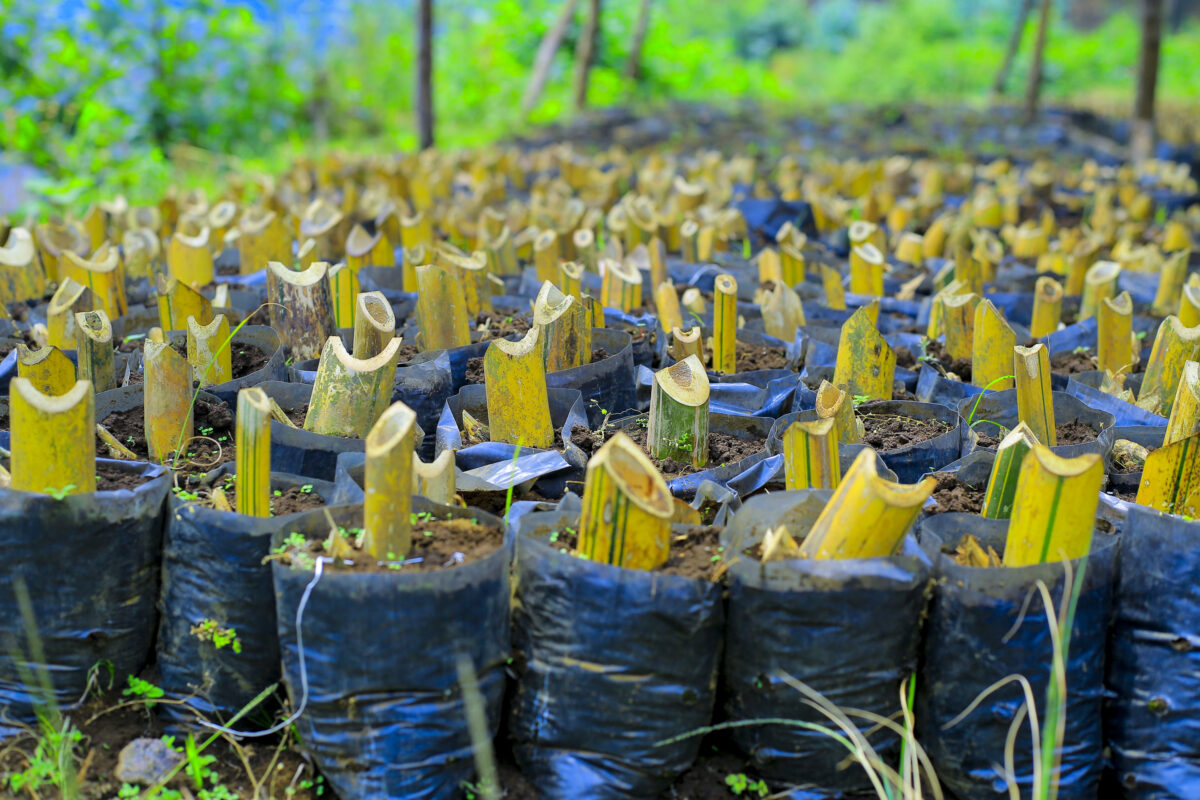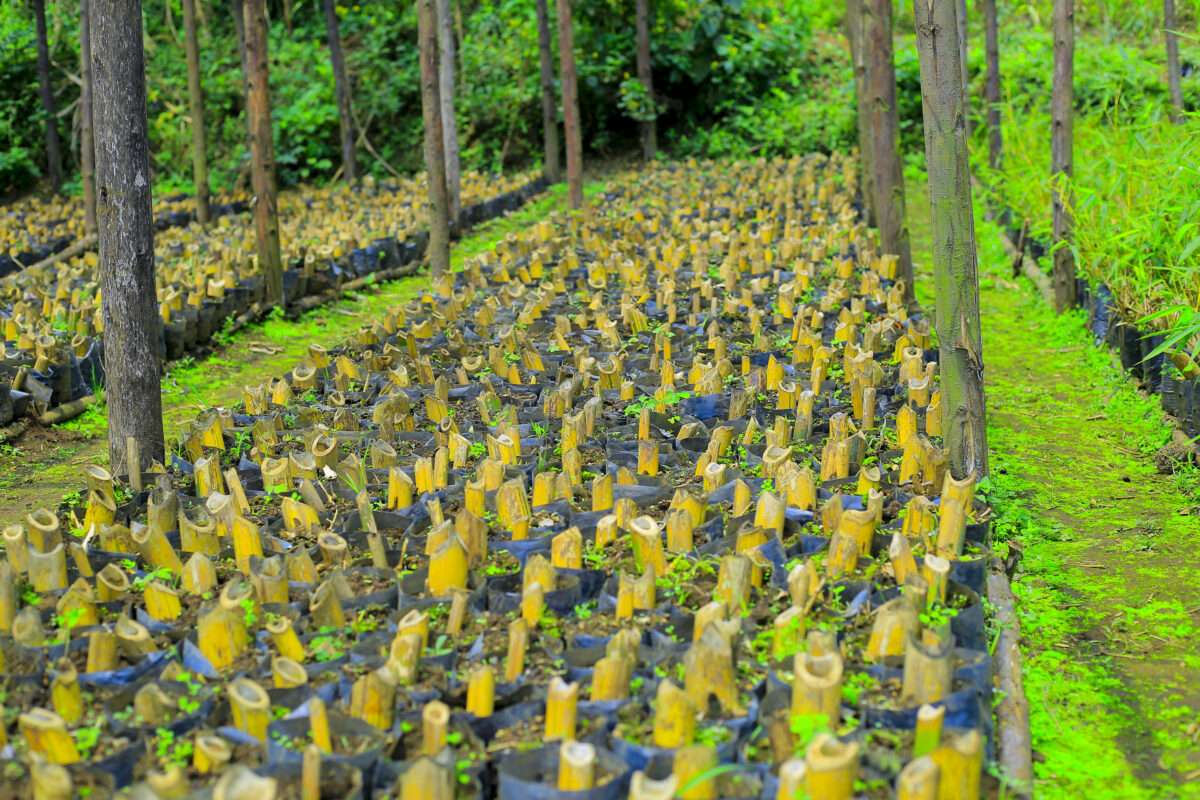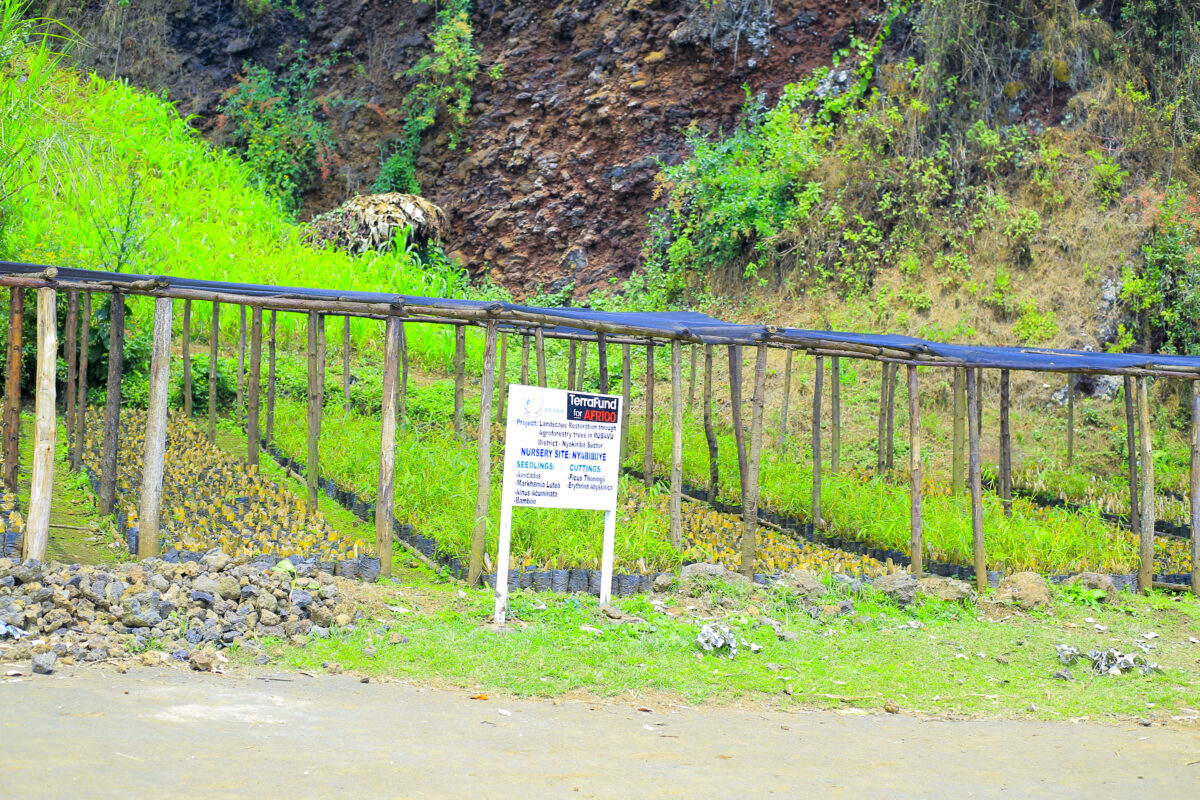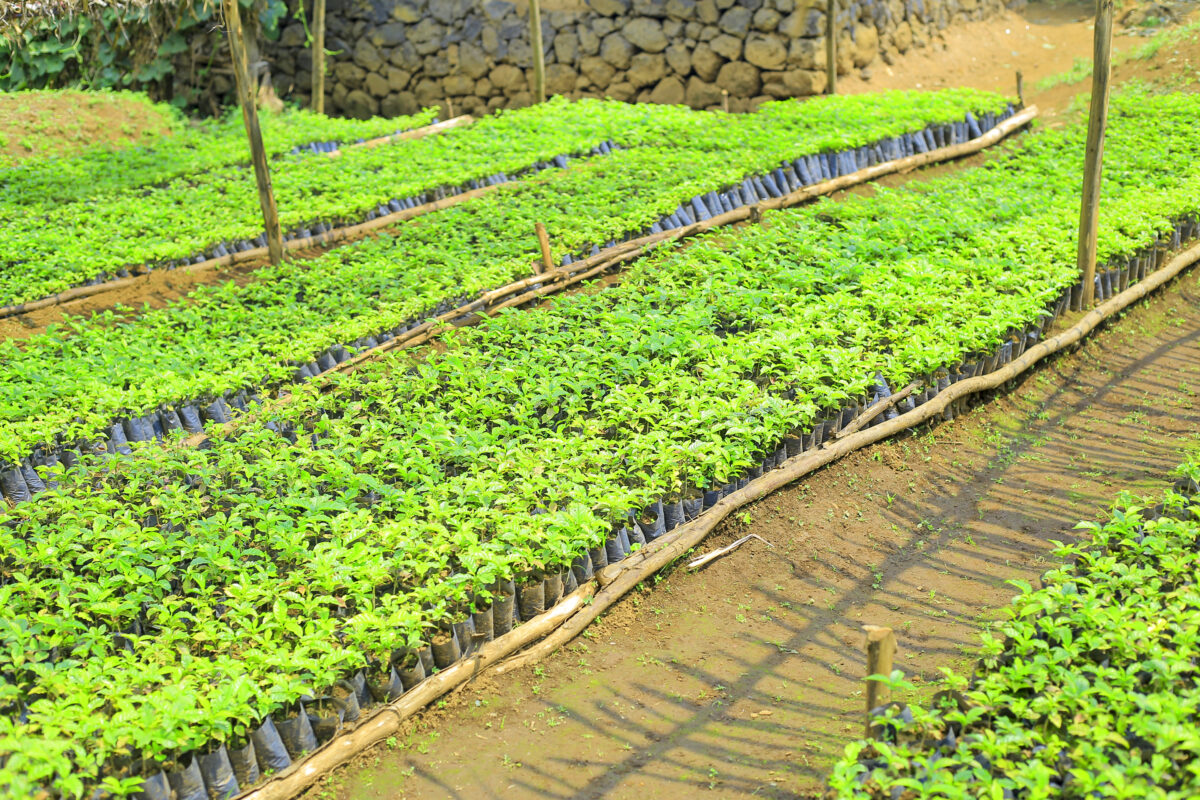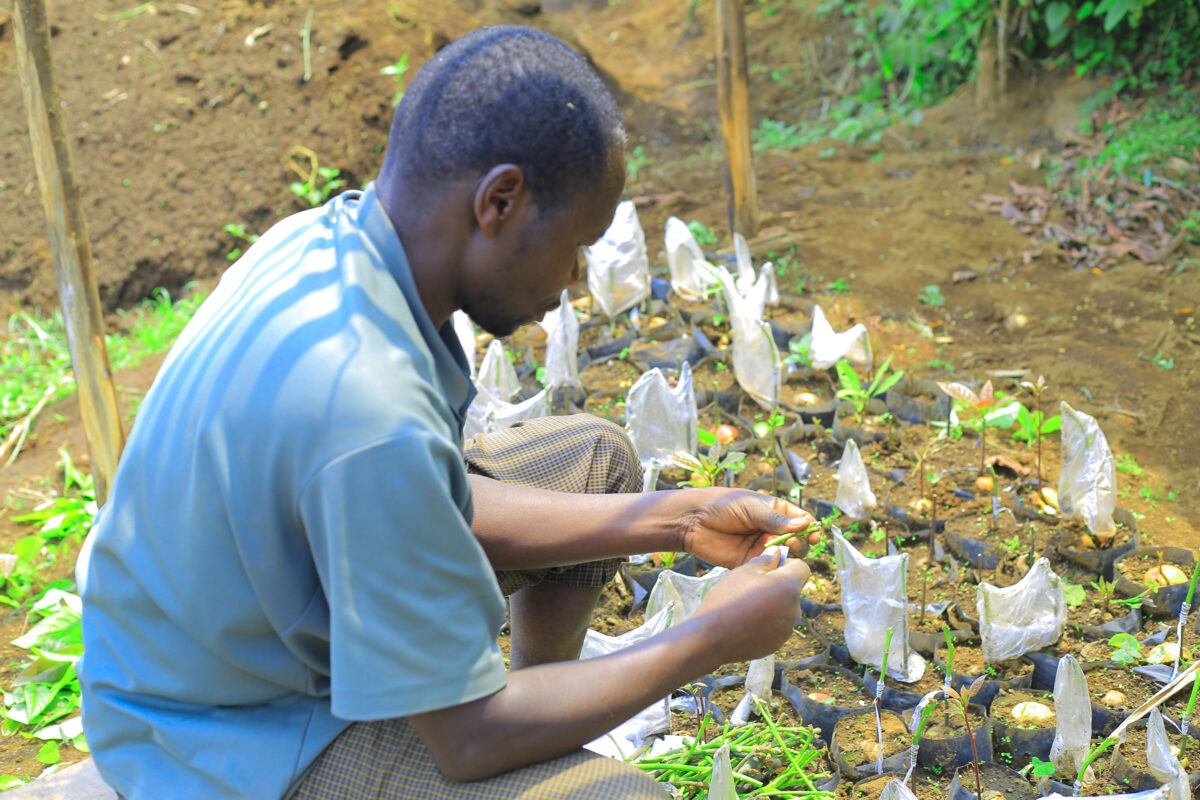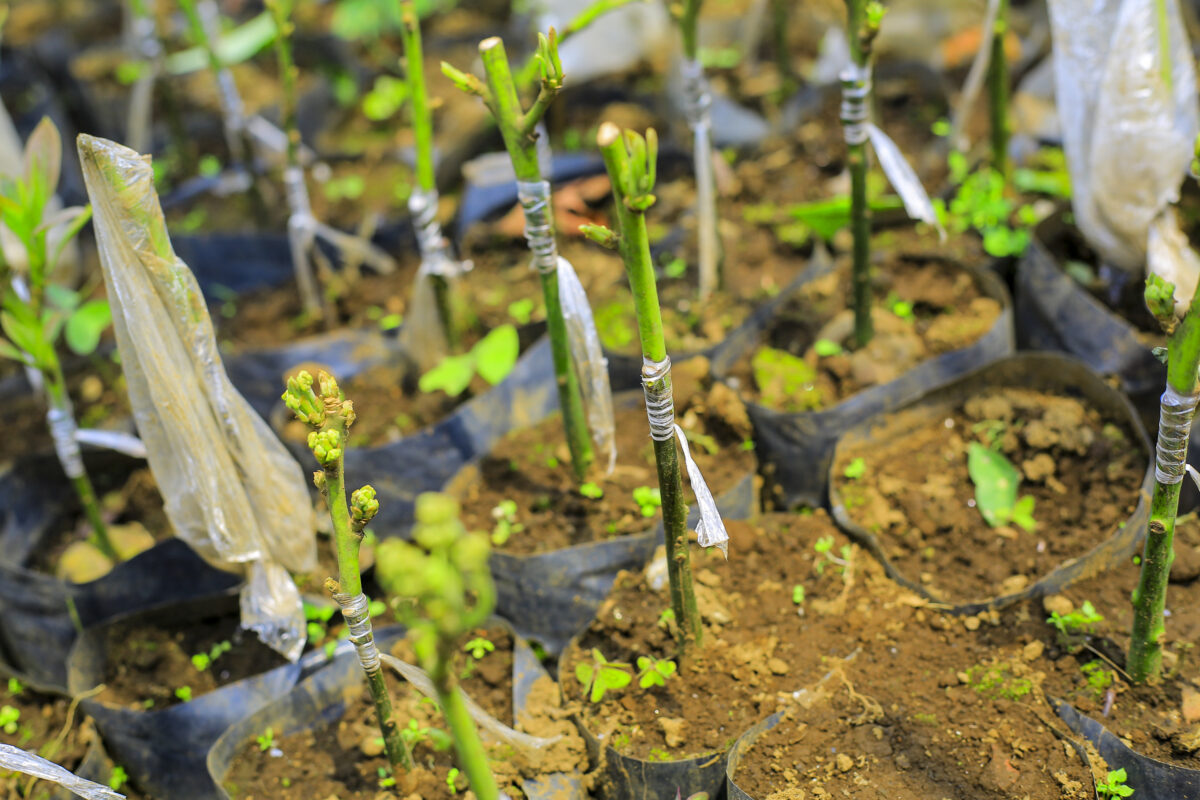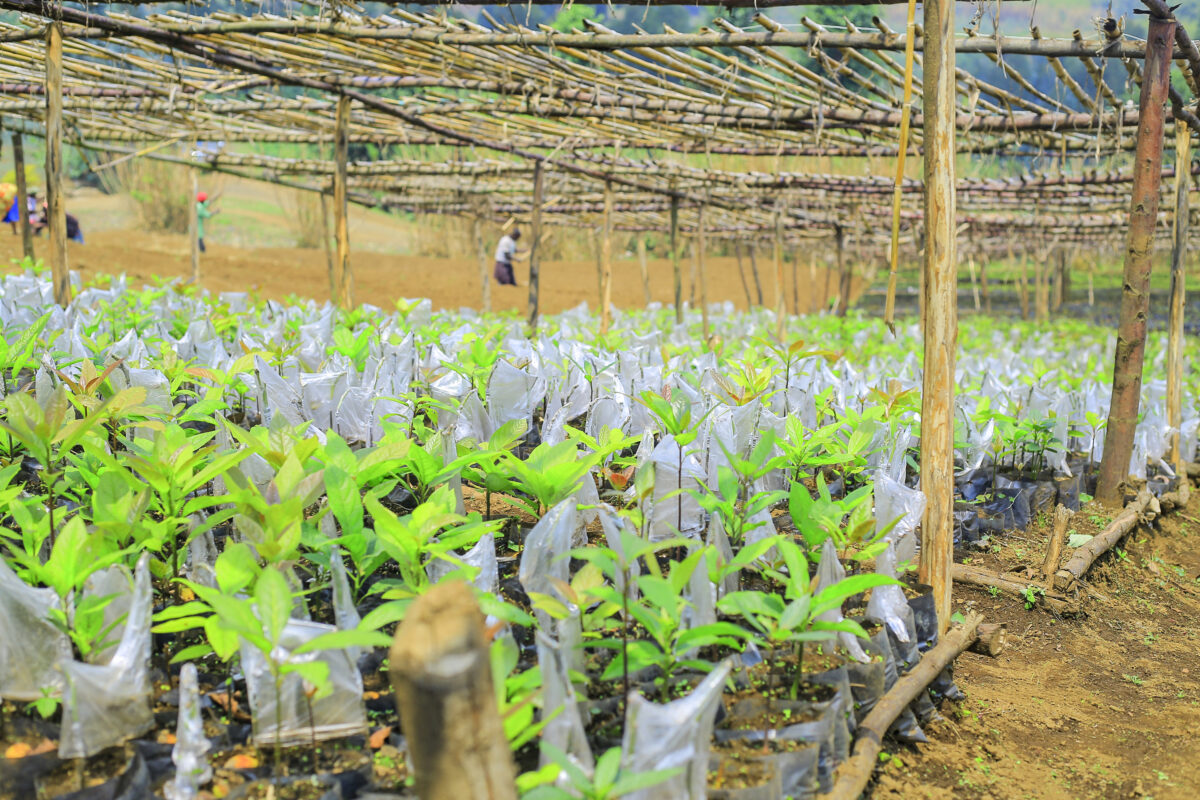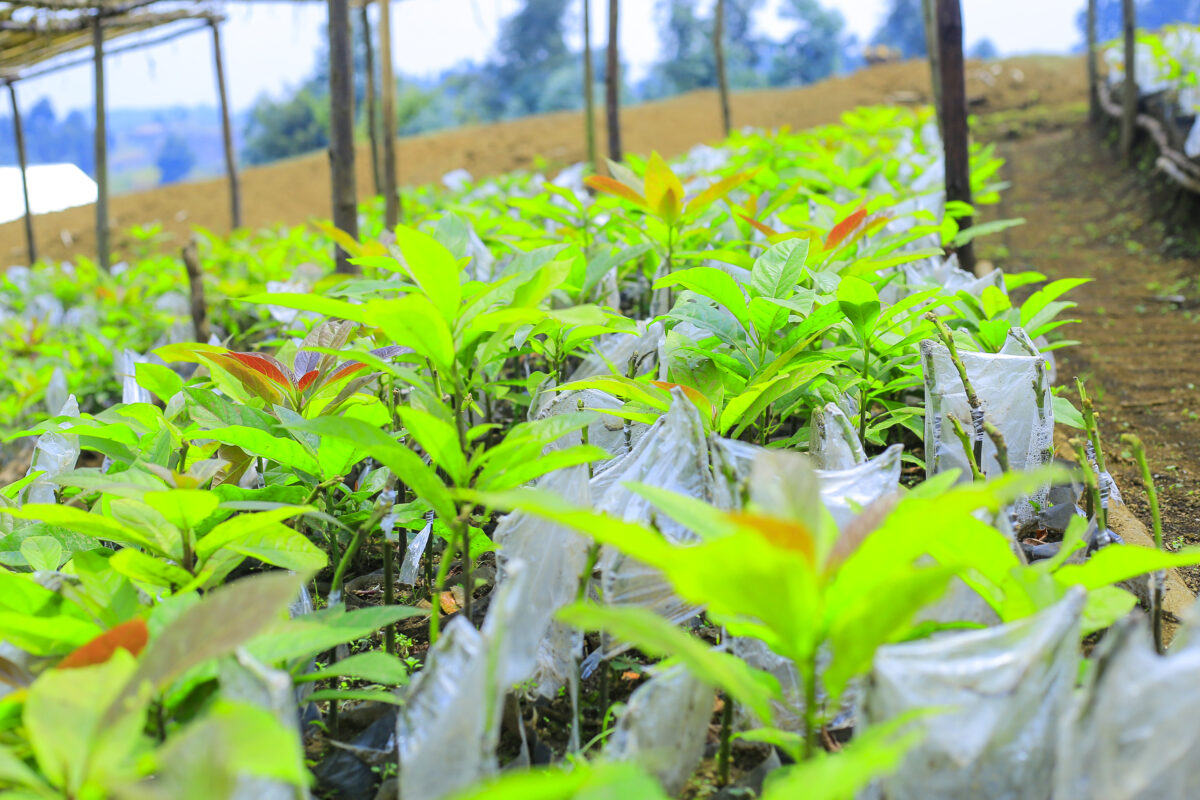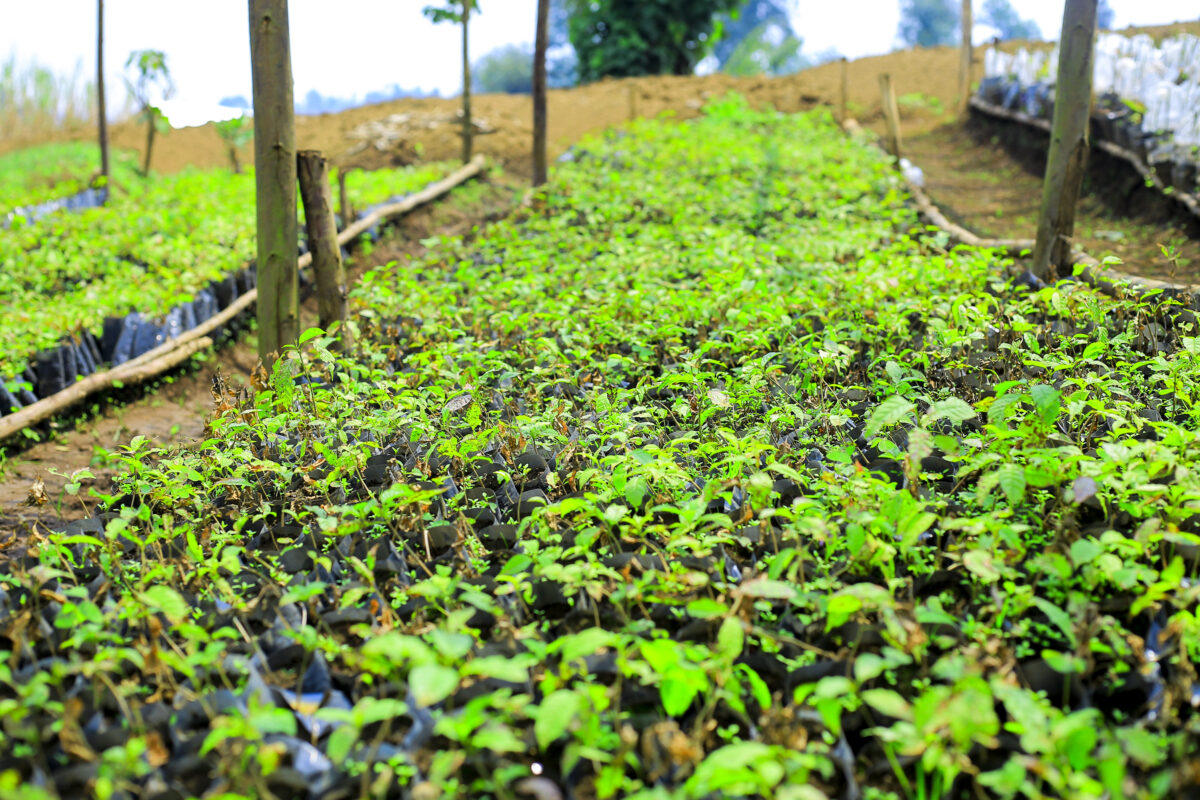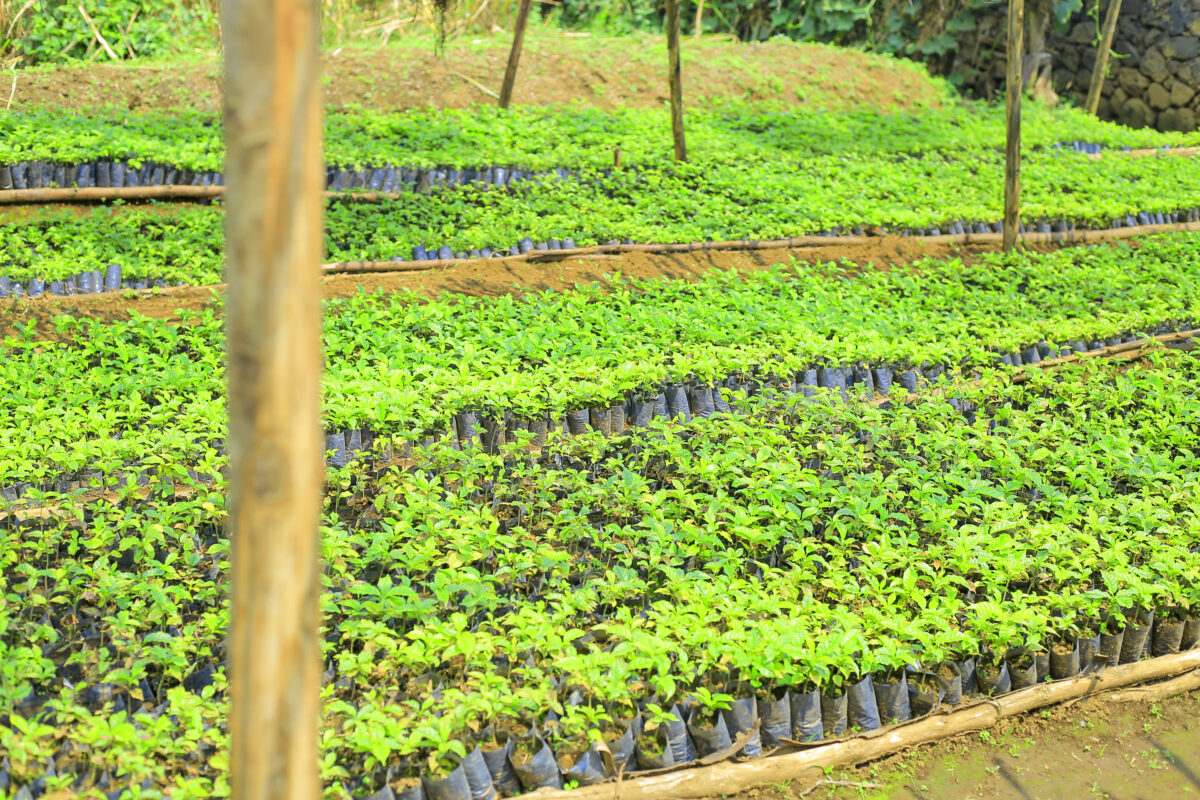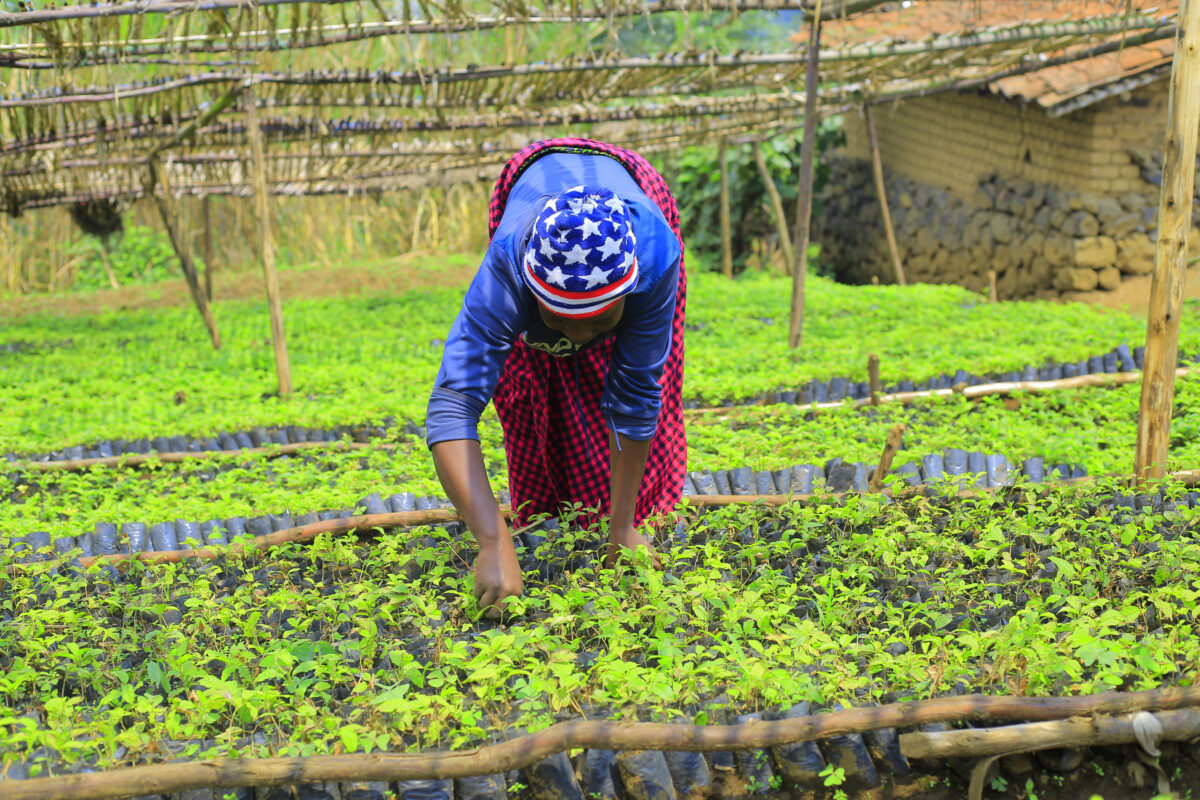Rubavu, Rwanda – September 2024: A groundbreaking project aimed at landscape restoration through agroforestry is transforming the lives of the Rubavu District community. Spearheaded by ARDE/KUBAHO in partnership with Terrafund for AFR100, the initiative, which started in January 2024, is making significant strides in Nyakiriba and Cyanzarwe Sectors. The project, set to run for six years until December 2029, focuses on improving environmental resilience while enhancing local livelihoods.
The project encompasses a wide range of activities, including tree nursery management, community engagement, and capacity building. As of now, two nurseries have been established at Makoro and Nyabibuye sites, with over 200,000 seedlings of different tree species already in the pipeline. Notable species include avocados, Marikhamia Lutea, Alnus Acuminata, bamboo, Ficus thoningii, and Erythrina Abyssinica, all of which will be instrumental in restoring 1,500 hectares of degraded land.
Terrafund for AFR100 is a financing initiative that supports land restoration efforts across Africa as part of the African Forest Landscape Restoration Initiative (AFR100), which aims to restore 100 million hectares of degraded land by 2030. It provides funding and technical assistance to smallholder farmers, local organizations, and businesses to restore degraded landscapes, improve livelihoods, and enhance climate resilience. By focusing on community-driven projects, Terrafund contributes to sustainable development goals, such as climate action and food security, while ensuring the impact of restoration efforts is monitored and sustainable.

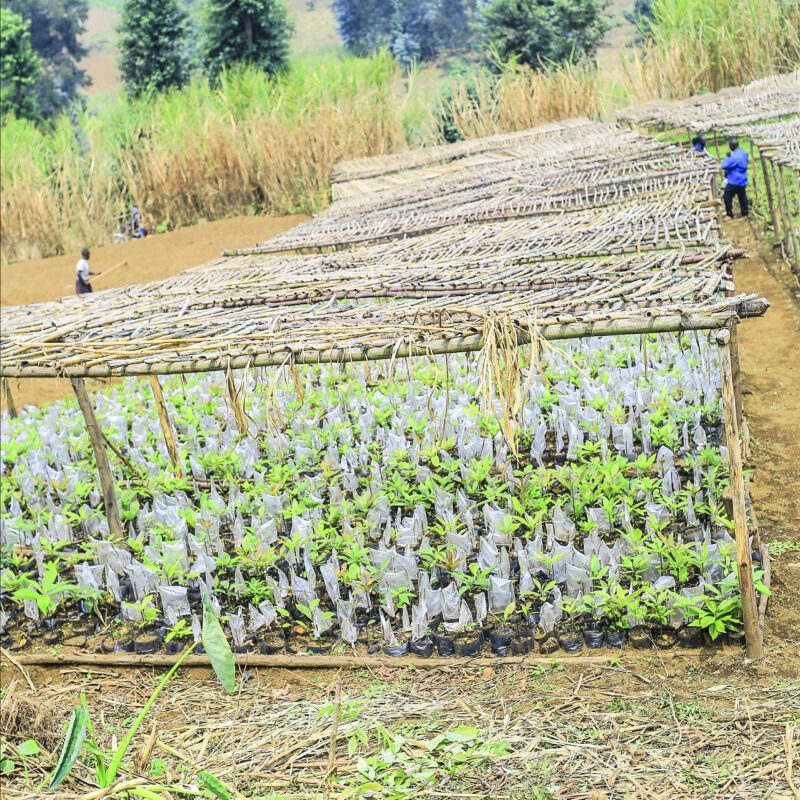
Trees nursery in Nyakiriba
Agroforestry for Climate Resilience and Food Security
Agroforestry, which integrates trees into agricultural systems, is the backbone of the project. By planting 250,000 trees, the project aims to restore degraded landscapes, boost agricultural productivity, and strengthen food security. The restored land will not only provide a buffer against climate-related challenges, such as landslides and soil erosion, but also increase the resilience of farmers against the impacts of climate change.
The project is set to benefit 5,000 farmers, who will be equipped with the skills to implement sustainable land management practices. So far, 141 farmers have undergone training in topics related to land restoration, agroforestry, and climate change mitigation.
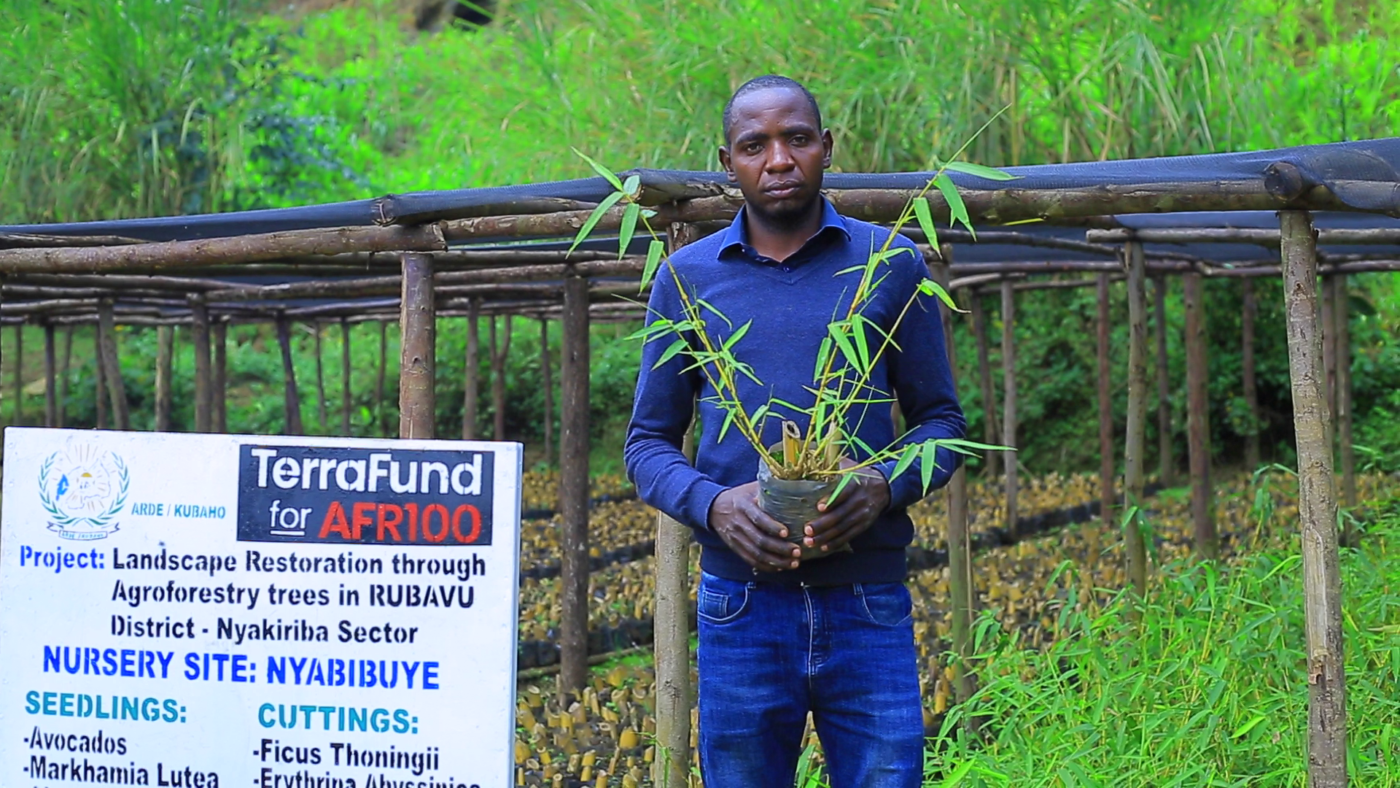
John NIYITEGEKA, the Project Agronomist, stated: “We have organized the beneficiaries into small groups, and we plan to provide them with trees. As they take care of these trees, they will receive ongoing support. This project will be implemented over six years, with the primary goal of restoring the environment in this region. Another key objective is to promote healthy nutrition.”
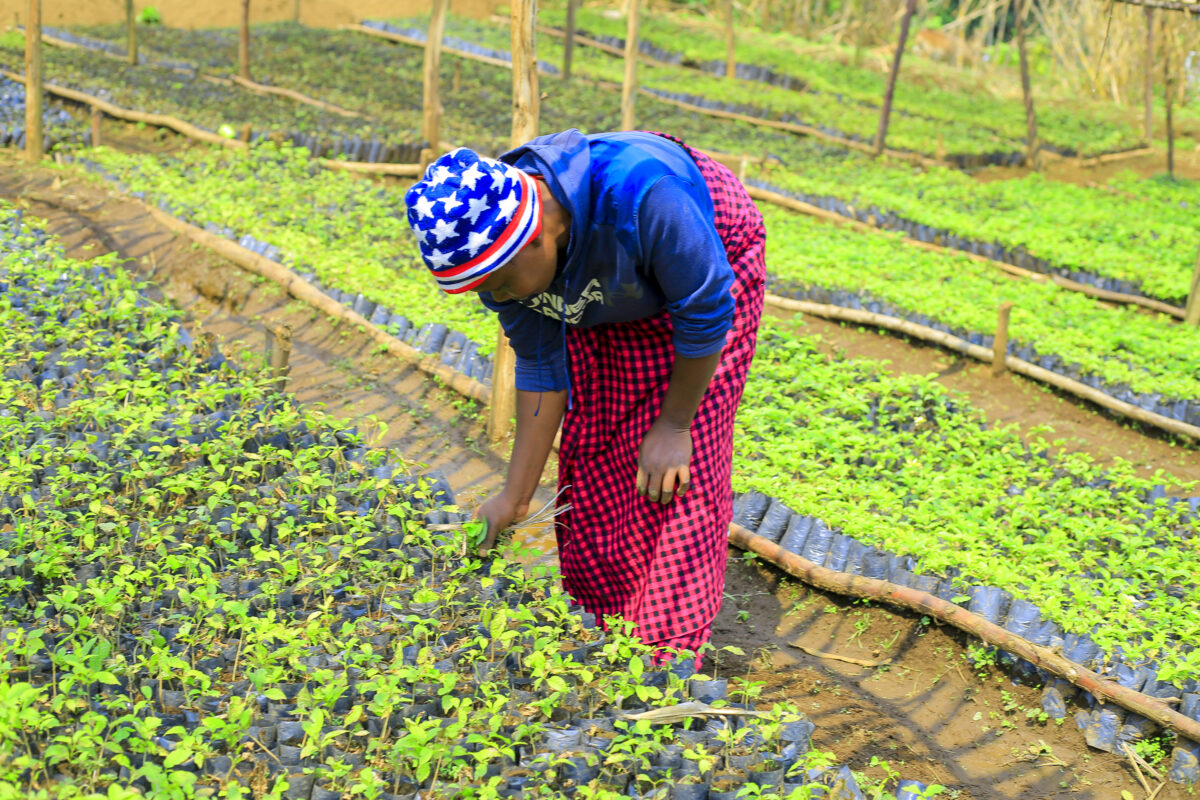
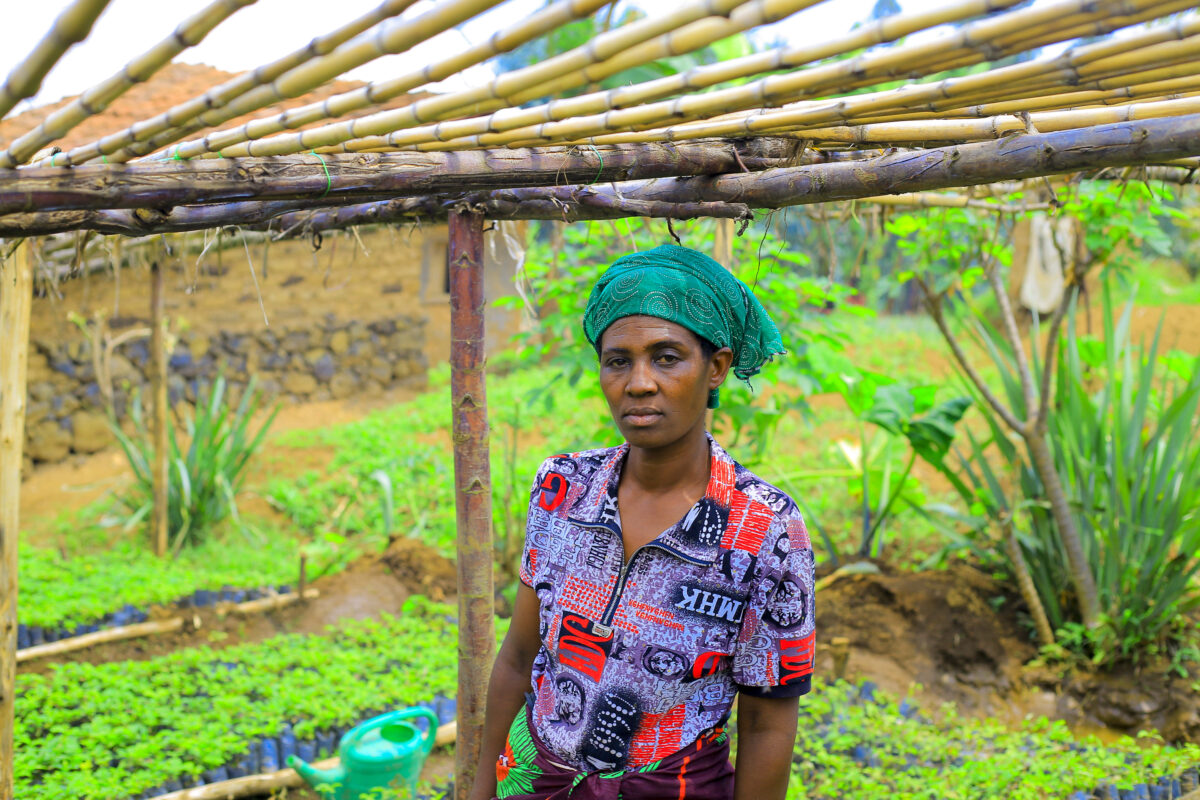
Numubyeyi “We are currently working on these trees in the nursery, and we plan to plant them at our homes and farms once they are ready.”
Community Engagement and Capacity Building
A key element of the project’s success has been community engagement. ARDE/KUBAHO has worked closely with local authorities and farmer groups, organizing community meetings and field visits to raise awareness about the importance of landscape restoration. These sessions have empowered local farmers to adopt agroforestry practices, with over 93,000 trees already marked for planting by farmers across the district.
Leaders of farmer groups have also participated in meetings to discuss intensive agricultural programs, with an emphasis on efficient land use and environmental conservation.
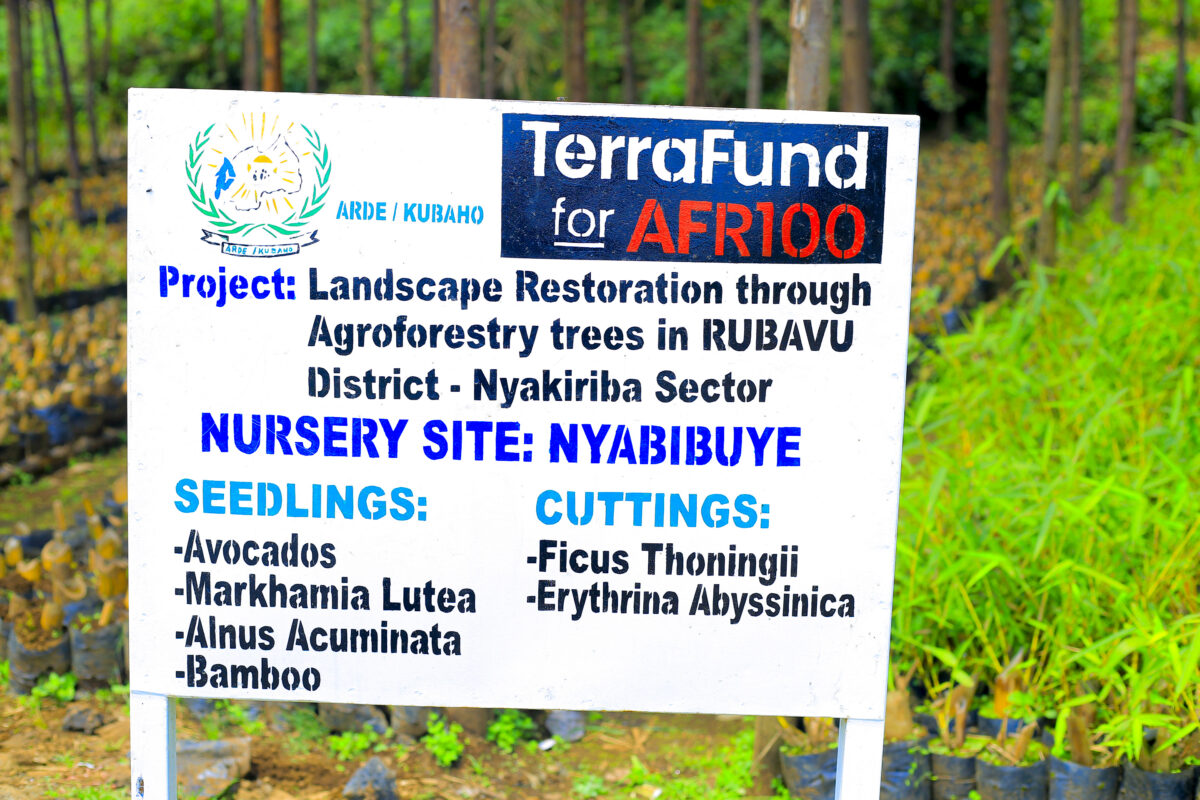
The signpost representing the project at Nyakiriba Nursery
Job Creation and Youth Engagement
One of the most immediate impacts of the project has been job creation. A total of 116 jobs have been created, with 32 positions filled by youth. Among those employed, 54 are women, showcasing the project’s commitment to gender inclusivity. This initiative is a critical contributor to addressing unemployment in Rubavu, particularly among young people, while ensuring that women play a pivotal role in environmental conservation.

Jean d’Amour said: “I’ve been working here for two months now. This project has provided us with jobs, and we’re grateful for that.”
Long-Term Vision
The landscape restoration project is more than just a short-term intervention; it is a long-term vision for sustainable development. The initiative will contribute to increasing agricultural productivity, enhancing food security, and generating income for local communities. By restoring the ecological balance, the project also aims to reduce vulnerability to natural disasters and promote climate resilience in Rubavu District.
As the project progresses, it will create over 500 jobs and ensure that local communities benefit from the restoration of their land. With continued support and community participation, this initiative will leave a lasting impact on the people and environment of Rubavu District.
PICTORIAL
